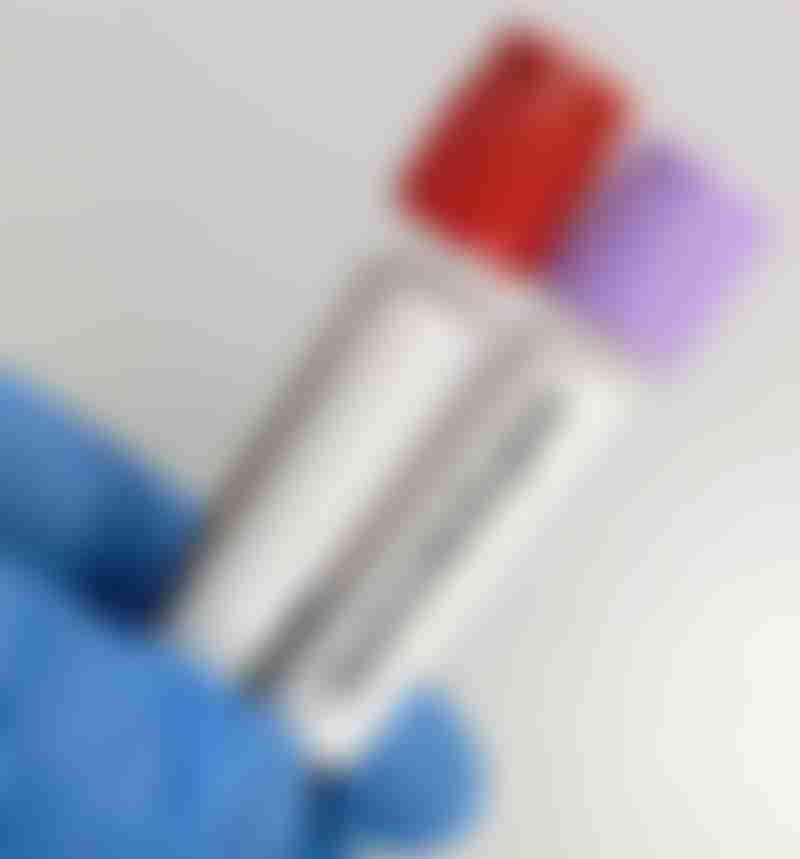Lynch Syndrome: Genetic Testing and Management

Source: Shutterstock
What is Lynch syndrome?
Lynch syndrome is an inherited genetic disorder that increases your risk of developing various types of cancers, including stomach (or gastric) cancer. Suffering from this hereditary condition increases your risk of stomach cancers by up to 13%.
Lynch syndrome is caused by mutations (alterations) in one of five mismatch repair (MMR) genes: MLH1, MSH2, MSH6, PMS2 and EPCAM. In normal circumstances, the protein products of MMR genes act as “spell-checkers” that catch and correct errors in your DNA during cell division. However, when any of the MMR genes are mutated, the proteins lose their spell-checking function. This is known as a deficient MMR (dMMR) system, which allows DNA mismatches to accumulate in regions of DNA called microsatellites. As a result, these short, repeating DNA sequences become unstable, leading to a state known as microsatellite instability (MSI). An MMR deficiency and high MSI (MSI-H) can lead to mutations and the subsequent inactivation of downstream genes. These genes, such as tumor suppressors p53 and adenomatous polyposis coli (APC), are responsible for regulating cell growth and division. As a result of their inactivation, affected cells can start to divide uncontrollably and turn cancerous.
Lynch syndrome is considered an inherited cancer syndrome; if one of your biological parents has Lynch syndrome, you have a 50% chance of inheriting the mutated copy of the MMR gene and thereby inheriting the disorder. But it should be noted that dMMR/MSI can also happen as a result of somatic mutations in the MMR genes and not all cases of dMMR/MSI will lead to Lynch syndrome.
Should I be worried about Lynch syndrome?
If you have a family history of Lynch syndrome-associated cancers such as gastric cancer, you may be concerned about having this hereditary condition and your chances of developing cancer in the future. In this case, genetic testing is something you should seriously consider. Genetic testing will be able to reveal more information about yourself and help you take control of your health by identifying the next necessary steps. You should always talk to your healthcare provider(s) about whether genetic testing is recommended based on your personal and family history.
What is genetic testing?
A germline genetic test involves analyzing a blood or saliva sample and studying your DNA to identify germline mutations in any of the MMR genes associated with Lynch syndrome. The tests used are the microsatellite instability (MSI) test and immunohistochemistry (IHC) test.
Germline testing differs from somatic testing, which looks for acquired mutations in a confined set of cells or tissues. Somatic genetic tests involve examining tumor tissue to identify any mutations that have occurred spontaneously. Somatic mutations are usually isolated to the tumor or region where the cancer is found in your body, whereas germline mutations are present in the tumor and in every cell of your body since birth.
Should I get genetic testing?
In general, you should consider genetic testing for Lynch syndrome if you or your family meet any of the following criteria:
- Colorectal cancer or endometrial cancer before age 50
- Several cases of colorectal, endometrial or ovarian cancer on the same side of the family
- Multiple and/or early-onset colon polyps
- Multiple primary colorectal and/or Lynch syndrome-associated cancers (e.g. endometrial, ovarian, gastric, small intestine)
- Any Lynch syndrome-associated cancers or tumors with an abnormal result on standard MSI or IHC tumor screening tests
- Known diagnosis of Lynch syndrome
Management of gastric cancer risk in people with Lynch syndrome
If you’ve been diagnosed with Lynch syndrome, you may be worried about what can be done to cope with your condition and the associated cancer risks. When it comes to managing your risk of gastric cancer, regular surveillance of the upper gastrointestinal tract (GI) tract via an upper endoscopy is typically recommended.
Also known as an esophagogastroduodenoscopy (EGD), an upper endoscopy allows your doctors to look at the inside of your upper GI tract (i.e. the esophagus, stomach and duodenum) to check for any signs of cancer. It is also effective for intestinal-type gastric adenocarcinomas, which are usually observed in people who develop gastric cancer with Lynch syndrome.
This procedure uses an endoscope, which is a thin, lighted, flexible tube with a small camera at its tip. The endoscope is inserted through your nose or mouth, down your esophagus and into your stomach and small intestine. This imaging procedure is highly sensitive and accurate, especially when combined with endoscopic biopsy for tissue diagnosis. For this reason, it is considered the gold standard for gastric cancer diagnostics and has resulted in a higher detection rate of early-stage gastric cancers. According to clinical guidelines by the American College of Gastroenterology (ACG), the standard screening age for regular surveillance via EGD is 30 to 35 years old.
It is important for individuals with Lynch syndrome to take any necessary measures to manage their gastric cancer risk. Constant monitoring may seem like a hassle, but it is crucial not to let the inconvenience deter you from prioritizing your health and well-being. Early detection can make a difference in the outcome of the disease.